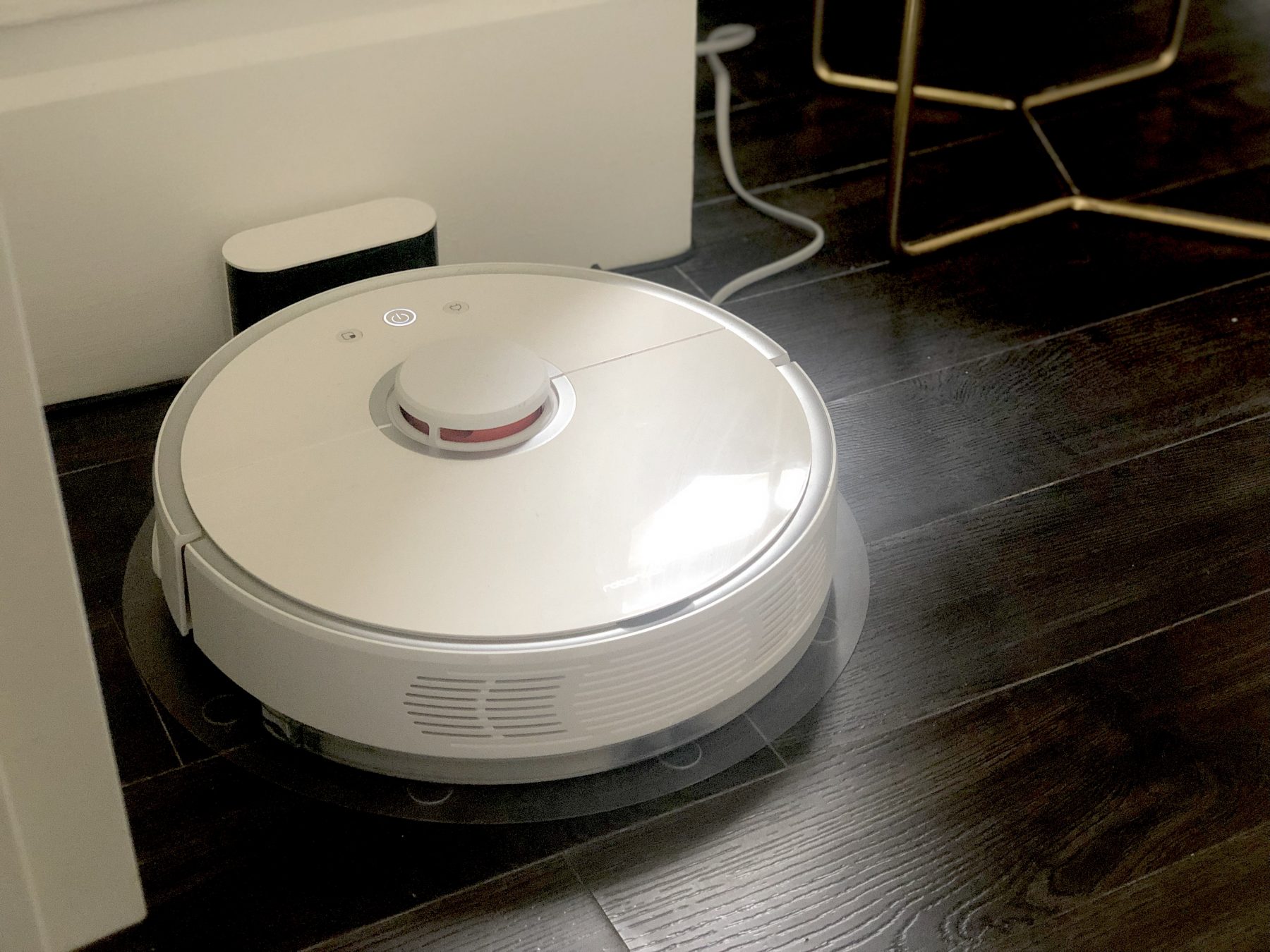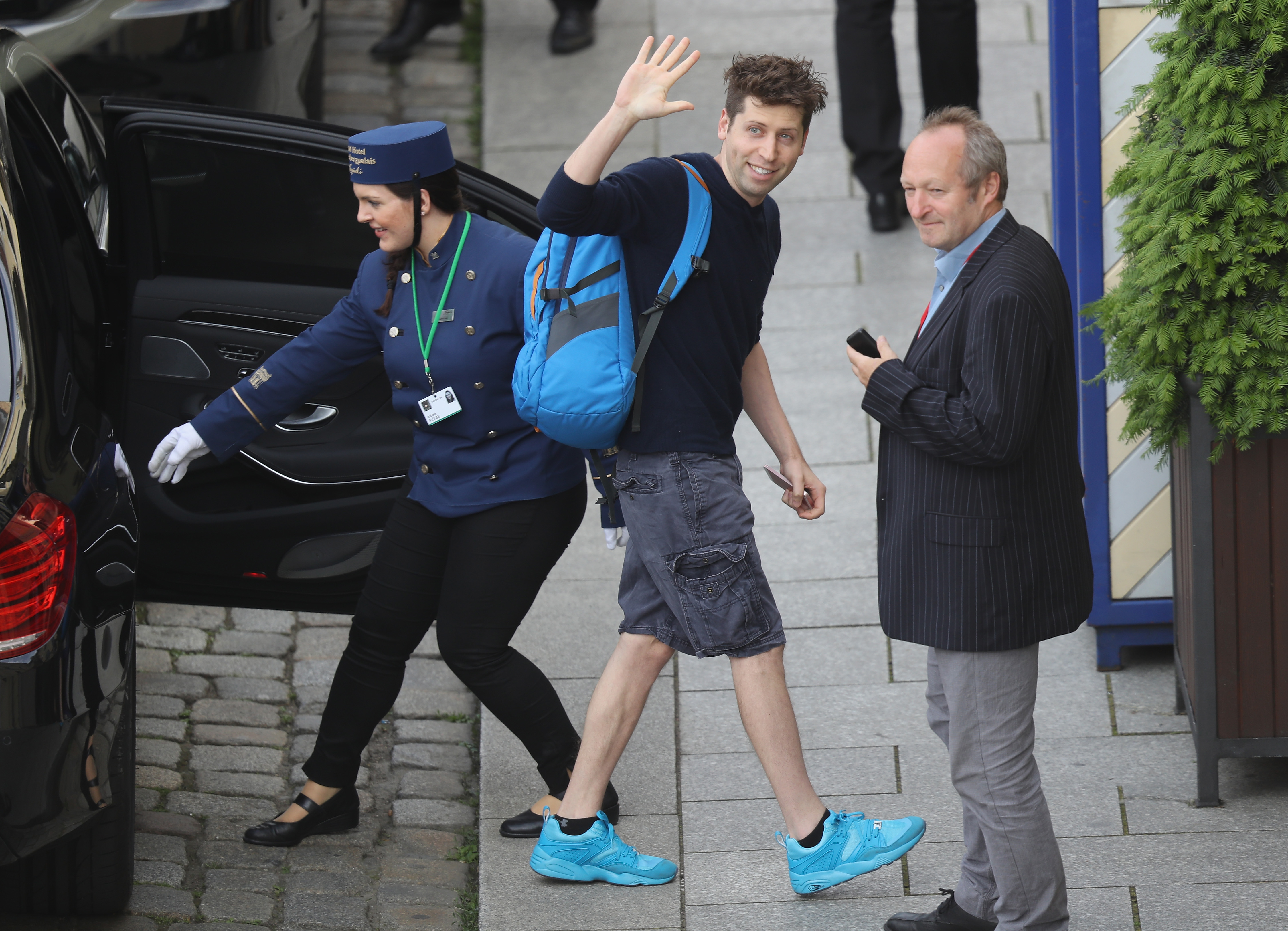
Stars That Cannibalize Other Stars Are Known As? |
|
Think you know the answer? |
|
from How-To Geek https://ift.tt/2J2rODy

Stars That Cannibalize Other Stars Are Known As? |
|
Think you know the answer? |
|

![]() Katia Moskvitch / WIRED UK:
Katia Moskvitch / WIRED UK:
Inside CERN's quest to build a reliable quantum computing device, as it'll need 50-100 times more computing power to process Large Hadron Collider data by 2026 — Quantum computers could help explain some of the most fundamental mysteries in the universe and upend everything from finance to encryption …

![]() Romain Dillet / TechCrunch:
Romain Dillet / TechCrunch:
In a summary judgement, court dismisses Paris' lawsuit against Airbnb for allegedly posting illegal listings, which likely means its case isn't strong enough — A court in Paris has dismissed a case against Airbnb, as Le Monde reported. Last month, the City of Paris sued Airbnb for 1,010 illegal listings.

![]() Tom Simonite / Wired:
Tom Simonite / Wired:
A look at NIST's Facial Recognition Vendor Test program for facial recognition algorithms, which influences purchasing decisions of US agencies and business — LAST YEAR, CHINESE police arrested a man at a pop concert after he was flagged as a criminal suspect by a facial recognition system installed at the venue.

![]() Nilay Patel / The Verge:
Nilay Patel / The Verge:
Interview with Sen. Warren on her plan to break up big tech, including Apple, which she says shouldn't compete against devs in the App Store with its own apps — Under Warren's plan, Amazon would not be able to sell Amazon Basics products on the Amazon retail store, Google would not be able …
Massachusetts Senator and 2020 presidential candidate Elizabeth Warren made waves yesterday when she outlined her plan for breaking up big tech companies like Amazon, Google and Facebook. Now, The Verge reports Warren also wants to break up Apple.
Specifically, Warren believes Apple should not be able to both run the Apple App Store and distribute apps in it.
“It’s got to be one or the other,” Warren told The Verge. “Either they run the platform or they play in the store. They don’t get to do both at the same time.”
Warren’s proposal includes passing legislation to designate companies that offer marketplaces, exchanges or platforms for connecting third-parties with annual global revenues of more than $25 billion as “platform utilities.”
“These companies would be prohibited from owning both the platform utility and any participants on that platform,” Warren wrote on Medium yesterday. “Platform utilities would be required to meet a standard of fair, reasonable, and nondiscriminatory dealing with users. Platform utilities would not be allowed to transfer or share data with third parties.”
That would mean Amazon, for example, would not be able to sell its Amazon Basics line of products on its marketplace. Same goes for Apple, under Warren’s proposal.
“If you run a platform where others come to sell, then you don’t get to sell your own items on the platform because you have two comparative advantages,” Warren said. “One, you’ve sucked up information about every buyer and every seller before you’ve made a decision about what you’re going to sell. And second, you have the capacity — because you run the platform — to prefer your product over anyone else’s product. It gives an enormous comparative advantage to the platform.”
I’ve reached out to Warren’s media team and will update this story if I hear back.

![]() Susie Cagle / OneZero:
Susie Cagle / OneZero:
The sharing economy, once touted as community-building, sustainable, and a salvation from capitalism, has in fact only ushered in a precarious economic future — ‘Sharing’ was supposed to save us. Instead, it became a Trojan horse for a precarious economic future.

![]() Oscar Schwartz / The Guardian:
Oscar Schwartz / The Guardian:
AI-based emotion detection has become a $20B industry, but some experts say the foundational science behind the tech is flawed and can adversely affect society — Machines can now allegedly identify anger, fear, disgust and sadness. ‘Emotion detection’ has grown from a research project to a $20bn industry
It was only a matter of time before I let a robot enter my apartment and run wild. Roomba’s have been around since 2002, so it’s somewhat odd that it took me so long to get on board the robot vacuum train. But, alas, I’ve been testing the Roborock S5, a combo vacuum and mop, in my apartment for the last few weeks.
TL;DR: I love him. We’ve only been together for a little while but I’ve grown to care for him, and I worry about him when he goes on a rug that’s just a bit too shaggy for his liking. I remember coming home one day and he was nowhere to be found. He wasn’t at his little docking station, which is where I last saw him. So, naturally, horror quickly set in. I feared my little robot dude had gone rogue and was hiding behind a corner, waiting to make his move to kick off the house robot revolt.
Turns out, he was just trying to be helpful by putting himself to work while I was gone. Before I left for the day, I had asked him to vacuum while I was home, but he ran out of battery (I didn’t fully charge him before his first job) and had to recharge.

Once he got enough juice, he went back to work but got stuck on the bathroom rug. He looked so helpless, just sitting there — immobile and only able to say “error.” I wondered how long he had been stuck there like that. I felt empathy for my little robot dude. This is why I don’t leave him home alone anymore while he’s on the job.
The Roborock S5 features 13 sensors to ensure it doesn’t fall off cliffs, hit walls and all of that fun stuff. It also comes with intelligent mapping and smart carpet identification. But, I suppose some rugs are just no match for my little robot dude.

A map of where my little robot dude went to work
Through the app, you can set specific zones for the robot to clean or avoid. When it senses it’s low on battery, Roborock S5 automatically returns to its docking charger.
My main qualm is around the mopping. The mop itself works great, but my little robot dude created some anxiety for me. It required a bit too much in-app customization for me to ensure he wouldn’t try to mop my rugs.
I had a moment where I thought to myself, “You know, it’d probably be faster for me to just mop the floors myself than keep fiddling with this app.” But maybe that’s because it was my first time using the mopping functionality. For future mopping sessions, I can set and save no-go zone and barriers.
There are a bunch of other technical features that I’m not going to go into here, but my takeaway is that it knows where it is in my apartment and works quite well. It currently retails for $546.99 on Amazon, while Roomba’s retail from $548 to $1K+ on Amazon. Roborock is backed by Xiaomi, along with other investors.

![]() Timothy B. Lee / Ars Technica:
Timothy B. Lee / Ars Technica:
Tesla is dealing with the failure to achieve full self-driving by shifting goalposts, as it continues using its customers as unpaid safety drivers for its tech — Tesla just shifted the goalposts for “full self-driving” technology. — An overhaul to Tesla's Autopilot webpage might represent …

![]() Financial Times:
Financial Times:
As ride-hailing and p2p lending face govt. scrutiny in China, a number of state-backed startups have entered those sectors increasing the pressure on incumbents — Technology start-ups in two of China's hottest sectors are facing a fresh rush of competition as state-backed rivals push into ride-hailing and peer-to-peer lending.
Andre Iguodala, a key member of the Golden State Warriors basketball team, is no stranger to the tech industry. He’s invested in Tristan Walker’s Walker & Company, which has since been acquired by Procter & Gamble, electric scooter startup Lime and many others. Now, he’s joined the board of directors over at Jumia, an African e-commerce startup that became the continent’s first unicorn back in 2016.
“For me, it’s really important because I have a lot of roots in Africa with my father being from Nigeria,” Iguodala told TechCrunch over the phone this week. “I’m proud of that and willing to do a lot of things with a company that’s on the forefront of the e-commerce space as a whole.”
This is not Iguodala’s first time serving on a startup’s board of directors, but it’s the only one he’s currently serving on. Iguodala previously served on the board of Twice, an online clothing resale store, which eventually sold to eBay. At Jumia, Iguodala is on the compensation committee, where he looks at hiring, and how to attract talent and ensure Africans continue to have a place at the table. It’s worth noting that Jumia co-CEOs Sacha Poignonnec and Jeremy Hodara are not African.
“We’re having conversations about diversity and making sure the African culture is in the company, and Sacha [CEO Sacha Poignonnec] is doing a great job with that,” Iguodala said. “I want to make sure we’re hiring from within and making sure the people we’re affecting and helping are involved with the company as far as hires go.”
Within Africa’s tech scene, there’s an ongoing conversation about the role of Westerners, expats and repats.
“That’s definitely something that’s been on my radar,” Iguodala told me. He pointed to how Africa has a wealth of natural resources, including petroleum, natural gas, gold, diamonds and more.
“Everyone is about growth and where they align themselves financially,” he said. “You can do it morally the right way.”
Iguodala says he’s also helped brainstorm new business opportunities for Jumia. For example, Iguodala said he suggested to Poignonnec that the startup expands into brick and mortar. Given the trend in America where e-commerce companies establish themselves online and then open brick and mortar locations (e.g. Amazon), Iguodala suggested that as a possibility for Jumia.
Down the road, Iguodala envisions exploring additional opportunities in Africa’s tech scene, but that it’s “not something I’m trying to rush.” He has a couple of trips to Africa planned for this summer, but his main focus right now is on Jumia.
“I feel really strongly about it especially because I have roots there,” Iguodala said. “I’m trying to incorporate the roots of Africa within the company and continue to expand and get people on the platform. There’s so much room for growth — not just for the company but for the continent.”

![]() Cecilia Kang / New York Times:
Cecilia Kang / New York Times:
Profile of FTC chairman Joseph Simons, who wants the agency to have more direct authority to oversee privacy practices and fine companies — WASHINGTON — The Federal Trade Commission has no shortage of critics who say it cannot protect Americans from the prying eyes of Big Tech.

Sony has launched a PS4 Remote Play app for iOS. So if you have an up-to-date PlayStation 4 and a new-ish iDevice, you can now play PS4 games on your iPhone or iPad. Which means you can play PS4 games even when someone else wants the TV.
You have been able to play PS4 games on selected Android devices (Sony Xperia) for several years. And there are Remote Play apps available for Windows and Mac too. However, Sony has now brought the same functionality to iOS devices.
The ability to play PS4 games on your iPhone or iPad arrived with version 6.50 of the PlayStation 4 firmware. Once you’ve updated your PS4, you just need to download and install the PS4 Remote Play app for iOS. Also, turn your PS4 on and log in.
Open the app and log in to your PlayStation account. The app will search your home network for your PS4. If successful, you should see the PS4 homescreen on your iOS device. If not, add your iOS device through the PS4’s Remote Play Connection Settings.
Starting today, you can stream your favorite PS4 games to your iOS devices with the PS4 6.50 update! Download the PS4 Remote Play app from the App Store to get started. https://t.co/65I0fNupP5 pic.twitter.com/VHeOYAV1Uz
— PlayStation (@PlayStation) March 7, 2019
PS4 Remote Play essentially mirrors what’s on your PS4 to another device. In this case your iPhone or iPad. Unfortunately, this only works over your home network. You also need a new-ish iPhone or iPad running iOS 12.1 or later.
The PS4 Remote Play app also doesn’t support Sony’s DualShock 4 controllers without jailbreaking your device or using a messy workaround. However, if the touchscreen controls prove to be too frustrating, you can use an MFi gamepad instead.
Prior to the release of the PS4 Remote Play app for iOS, there were a handful of third-party apps which let you play PS4 games on your iPhone. However, unlike the PS4 Remote Play app, you had to pay for the privilege of using an app such as R-Play.
The question now is whether Android users who don’t own an Xperia handset will be afforded the same luxury. Yes, Xperia is a Sony brand, but the iPhone isn’t, suggesting there are no technical reasons why this couldn’t be offered to all Android users.
Read the full article: You Can Now Play PS4 Games on Your iPhone
Y Combinator revealed yesterday that its president, Sam Altman, is stepping down from his role to become the accelerator program’s chairman. This change, said YC, will allow Altman to “spend more time focusing on OpenAI,” the San Francisco-based nonprofit that was cofounded by Altman and Elon Musk three years ago to get ahead of the risks posed by artificial intelligence,
The timing may not be so coincidental. Two weeks ago, Musk separated from OpenAI, whose operations Musk and Altman have funded, along with Reid Hoffman, Peter Thiel, YC cofounder Jessica Livingstone, and Stripe’s former CTO Greg Brockman, who is today the CTO of OpenAI. Musk cited disagreements about the company’s development as reason to “part ways on good terms.” A source tells us now that Altman actually intends to become CEO of the organization, though asked about this directly yesterday, Altman said he was too busy to discuss his immediate plans.
Either way, Altman’s newest move begs a question that industry watchers are likely to be asking for some time, and that is whether Altman – – who was part of the first YC startup class in 2005, began working part-time as a YC partner in 2011, and was made the head of the organization fives years ago — made YC better or worse during his tenure at the top.
Certainly, it is much changed. When Altman was handed the reins, YC had just graduated 67 startups, all of them from the U.S. It was a record number at the time, but Altman has since more than tripled the number of startups that YC will process in one batch, with YC set to present 205 startups to investors over two days across two stages in San Francisco two weeks from now.
Those numbers merely hint at Altman’s ambition. In the past two years, YC has launched Startup School, a free 10-week online program; the Series A program, which coaches seed-stage alums on how to nab follow-on funding; the YC Growth program, a 10-week dinner series that it characterizes as a kind of grad school program; Work at a Startup, a platform that connects engineers with YC companies; and YC China, a standalone program that be run out of Beijing once it gets up and going.
Even with a network that has 4,000 alumni and 1,900 companies, Altman has long said that he thinks YC can do even more. “Part of our model is to make the cost of mistakes really low, and then make a lot of mistakes,” he said at TechCrunch Disrupt in 2017. “We’ll fund a lot of people doing a lot of things that sound really dumb, and most of the time they will be. And some of the time, it will seem like a bad idea, and be jaw-droppingly brilliant. The very best startup ideas are at the intersection of the Venn diagram of, ‘sounds like a bad idea,’ ‘is in fact a good idea.'”
Some worry that Altman may have taken YC to unsustainable extremes, encouraging too many people with wobbly ideas to forsake safer, more conventional options for a chance to become the next Brian Chesky, and encouraging them, specifically, to come to the Bay Area for its accelerator program, despite overcrowding and soaring costs.
Others wonder if startups might eventually revolt against YC’s terms, which see it investing $150,000 in exchange for 7 percent of each company — a stake that it can maintain throughout the company’s life it it so chooses, per its pact with its founders.
While the halo effect of YC is real, giving away so big a piece of one’s company for so little funding vexes some founders later.

DRESDEN, GERMANY – JUNE 09: Sam Altman, President of Y Combinator, arrives at the Hotel Taschenbergpalais Kempinski Dresden for the 2016 Bilderberg Group conference on June 9, 2016 in Dresden, Germany. The Taschenbergpalais is hosting the 2016 Bilderberg Group gathering that will bring together 130 leading international players from politics, industry, finance, academia and media to discuss globally-relevant issues from today until June 12. A wide spectrum of groups have announced protests to be held nearby. Critics charge the secretive nature of the Bilderberg Group annual meetings is undemocratic. (Photo by Sean Gallup/Getty Images)
VCs — many of whom have a love-hate relationship with the powerful accelerator — have also whispered at times about possible conflicts of interest owing to Hydrazine Capital, a venture fund that Altman formed before being appointed as head of YC, with “significant investment” from Peter Thiel, as described in a 2017 New Yorker article about Altman.
Still, even people who might be tempted to take Altman down a notch say he has done a phenomenal job of running Y Combinator, including by turning the outfit into a global brand, creating a constant stream of new products, and by overseeing the development of infrastructure and software that has allowed the company to continue to scale for the foreseeable future.
Altman also diversified the types of founders the YC admits (though it could do better); 15 percent of the founders to pass through the accelerator last summer were women. And whereas the program was once dominated by consumer startups, it now graduates business-to-business software and services startups, healthcare startups, blockchain startups, real estate, govtech and fintech startups, among others.
Equally important, Altman — a masterful networker who isn’t known for being a terribly warm boss — ensured that everyone at the partner level at Y Combinator enjoys the same economics. It’s a surprisingly rare structure in venture capital, where it’s more often the case that a small group of investors is accruing most of the financial rewards based on how long they’ve been involved with an outfit or their specific contributions.
Indeed, Altman’s obvious drive will make it all the more interesting to see what he does with OpenAI, which just two weeks ago said it had developed an AI system that can create fake news so authentic looking that it decided not to release the full research to the public so it can better weigh its ramifications.
In the meantime, one guesses that YC, where Altman has not been involved operationally for some time, will be fine without him at the helm, including thanks to the continued involvement of Altman and YC founders Paul Graham and Jessica Livingston at the board level. More crucially, YC has Michael Seibel, its CEO, who has led the core YC program for the last four-and-a-half years. (Others of its numerous partners have also been with firm for years.)
As one VC told us yesterday, even with a YC that looks very different than it did five years ago — perhaps because of it — investors would be “idiots not to pay attention” to the founders it backs. Many of even the most nascent YC startups have begun raising funding at valuations that make it too expensive for angels or some seed-stage firms to participate — and that these founders may later regret when the market downturn inevitably comes. But for Series A and later-stage investors, there’s still no better avenue to reaching up-and-coming founders. When it comes to curating talent, says this investor, YC “is just too good.”